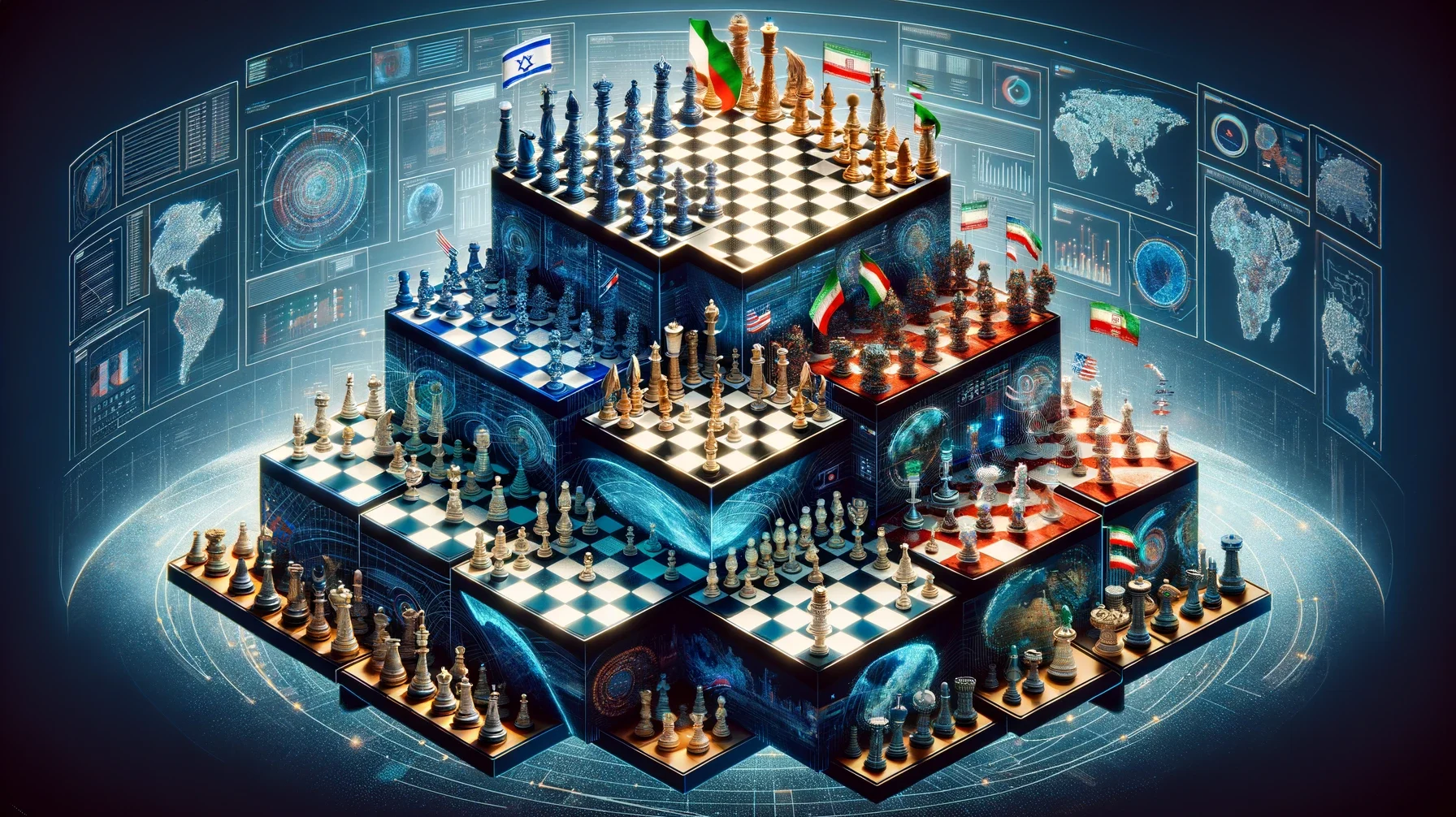Iran Is Deliberately Dragging Us Into a Multi-Arena War
Maariv, Israel, January 6
In the aftermath of the October 7 massacre, both Iran and Hizbullah were quick to deny any involvement in secret dealings with Hamas. The latter, on the other hand, boldly asserted that it acted independently in its attack against Israel, citing Israel’s continuous assault on the sacred sites of the Palestinian people as the motivation behind its aggression. Interestingly, this stance seems to be shared by Israel as well. The IDF spokesperson stated that while Iran remains a major player, there is no evidence to suggest that they orchestrated or trained for the operation. Similar remarks were also echoed by Prime Minister Benjamin Netanyahu, and some foreign publications have reported that intelligence sources in the West concur. However, in light of the October 7 massacre, we must adopt a humbler approach and come to terms with the fact that there are unknowns at play. In my opinion (which, it must be noted, is not supported by intelligence evidence), the entire attack was probably masterminded by Iran to aid their nuclear ambitions. According to this strategic plan, Hamas aims to catch Israel off guard and provoke a response that will result in the occupation of Gaza and a prolonged period of violence, draining the physical and mental resources of the IDF ground forces. Meanwhile, Hizbullah will employ a calculated and sophisticated approach in the north, avoiding a confrontation that would require Israel to deploy a significant number of troops on the border and exhaust its infantry reserves. After enduring months of turmoil in Gaza, Hizbullah plans to escalate the situation, deliberately pushing the IDF towards a ground operation in Lebanon when they are already fatigued and depleted. This tactic will be employed when Israel’s arms and supplies are diminished, its economy is suffering, its citizens are mourning the casualties of war, and its international legitimacy, especially with the United States, is questioned. Hizbullah’s strategy is clear: to draw Israel into an even more grueling and protracted battle than the ongoing one in Gaza. This cunning scheme, if executed successfully, could have grave consequences for not only Israel but also the stability of the entire region. It is imperative that Israel remains vigilant and takes all necessary precautions to prevent such a scenario from unfolding. As the conclusion of the Lebanese campaign approaches, Israel’s condition is predicted to deteriorate significantly in terms of its military, moral, and economic standing. In this vulnerable state, Iran will take advantage and speed up its nuclear program, filling in any remaining gaps to become a fully-fledged nuclear state. This will go against its current status as a mere threshold state. As this inevitable break-in occurs, Israel will be unable to launch an attack on Iran. This will cause the international community to lose patience with Israel, while its exhausted army will be unable to take any action. In recent weeks, we have witnessed troubling indications that Iran’s plans are coming to fruition. Saleh al-Arouri, a high-ranking Hamas official who was recently killed in Beirut, previously stated, “We are preparing for an all-out war and discussing it in confidential settings with all elements and parties involved in the resistance axis.” This bold statement sheds light on the fact that the axis of resistance is not only capable of regional warfare but also motivated and eager for its occurrence. Clearly, this group has a vested interest in such a conflict. Hizbullah is walking a fine line between provocation and restraint by not crossing the border into Israeli territory yet continuing to engage in anti-tank attacks against military forces while sparing civilian areas. Despite this cautious approach, military incidents between the two sides remain a daily occurrence. This ongoing aggression forces the Israeli Defense Forces, including their reserve forces, to maintain a constant state of readiness and remain at the border’s edge. Just last week, Iran (perhaps unintentionally) admitted that one of their attacks was in “revenge for the assassination of Soleimani,” but this statement was quickly denied by Hamas. This timing, right before the US election, could have political implications as it may limit support for Israel from the Biden administration. However, the most significant confirmation of these calculated actions comes from the International Atomic Energy Agency, which just this week reported that Iran has once again increased their uranium enrichment rates. These actions paint a clear picture of Hizbullah’s true intentions and their desire to escalate tensions in the region. One of the key takeaways from the events of October 7 is the adversary’s aptitude for crafting a flawless deception strategy against us. Hamas devised a fraudulent plan that spanned several years, utilizing staged demonstrations at the border, smuggling in laborers from Gaza, and other tactics to mislead us into believing that a peaceful resolution was imminent. However, even without concrete intelligence, it is evident that Iran has masterminded a cunning strategic deception plan, with the ultimate goal of exhausting IDF forces in a year-long conflict in Gaza and Lebanon. This scheme is designed to exploit Israel’s military, economic, and international vulnerabilities, ultimately allowing Iran to launch a surprise attack on our nuclear program. In light of these developments, we must take necessary precautions and learn from the lessons of October 7. We must act proactively in the Middle East, boldly launching preemptive strikes across all arenas while we are still relatively strong, instead of waiting until we are faced with excruciating weakness. We must act now before it is too late. —Refael Yana (translated by Asaf Zilberfarb)
This holiday season, give to:
Truth and understanding
The Media Line's intrepid correspondents are in Israel, Gaza, Lebanon, Syria and Pakistan providing first-person reporting.
They all said they cover it.
We see it.
We report with just one agenda: the truth.



